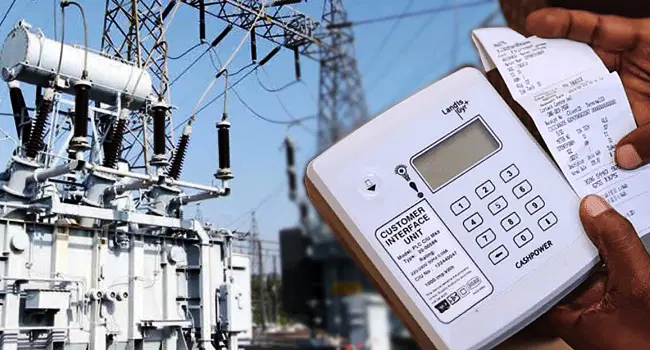The Federal Government has announced a pilot overhaul of two underperforming electricity Distribution Companies (DisCos) as the first step in a broader effort to revitalise the country’s electricity distribution network.
The initiative, unveiled by Adebayo Adelabu, minister of power, follows an extensive review of the persistent challenges bedevilling the sector, ranging from poor infrastructure and governance lapses to financial and operational inefficiencies. The move was announced after a strategy meeting with the Japanese International Cooperation Agency (JICA), which presented a roadmap titled “Revamping of the Distribution Sector in Nigeria.”
According to Adelabu, the pilot reform will kick off between May and August 2025 and will target one DisCo in the North and one in the South. The aim is to establish a replicable model for turning around performance through a combination of internal restructuring, external technical assistance, and proactive federal oversight.
“We can no longer fold our hands and watch the inadequacies of DisCos whose performances fall short of expectations,” Adelabu stated. “This pilot is not optional—we will use regulatory authority to restructure underperforming DisCos and compel compliance if necessary.”
Read also: NERC slams eight DisCos with N628m fine for overbilling customers
JICA-Backed Pilot for Turnaround
JICA’s roadmap, developed after the Minister’s official visit to Japan to study its energy system, proposes a holistic, results-driven strategy for transforming Nigeria’s ailing distribution sector. The plan emphasises “reforming DisCos from within” by integrating experienced external professionals, upgrading leadership structures, and aligning federal support with measurable, short-term targets in the pilot zones.
Takeshi Kikukawa, JICA’s Power Sector Policy Advisor to Nigeria, emphasised that the pilot scheme aims to deliver quick wins while building a long-term, sustainable foundation for reform. “The goal is to deliver immediate results in pilot areas while creating a sustainable foundation for nationwide improvement,” he said during the presentation.
The collaboration marks a significant milestone in Nigeria-Japan energy cooperation and signals a renewed effort to tackle the country’s chronic electricity distribution challenges.
Infrastructure, Investment, and Incentives
One of the core issues highlighted by Adelabu is the DisCos’ chronic underinvestment in critical infrastructure upgrades. The Minister noted that the reluctance is not merely a matter of capacity but also of weak financial incentives. “Their lack of investment is not solely due to unwillingness but also a lack of incentives. Returns on infrastructure spending are not commensurate,” he explained.
To address this, the government plans to promote franchising as a way of bringing capable operators into both profitable and underserved areas. Adelabu has directed the Nigerian Electricity Regulatory Commission (NERC) to enforce franchising mechanisms and ensure DisCos cooperate fully with reform directives.
“NERC must secure their buy-in. Past efforts failed due to resistance, but this time, we will be intentional and decisive,” he added.
Public Sensitisation and Accountability
In addition to technical reforms, the Federal Government plans to launch a public education campaign to raise awareness about the roles of different players in the electricity value chain—generation, transmission, and distribution. According to Adelabu, many Nigerians still perceive the sector as a monolithic entity, which contributes to consumer frustration and erodes trust.
“Educating consumers is critical to building trust and support for these reforms,” he said. “We must clarify who is responsible for what, so accountability is clearer and support for reform can grow.”
The Minister also acknowledged the complexity of the challenges facing the sector, including regional cultural barriers and vandalism, but reaffirmed the government’s determination to press ahead.
Read also: DisCos’ revenue falls 33% short in 2024, as regulator blame inadequate metering, poor service
Reform Blueprint and Next Steps
The Ministry of Power and NERC are currently working on the final details of the pilot scheme. DisCos exhibiting severe operational failures and poor service delivery metrics are being prioritized for inclusion.
This reform initiative is widely regarded as the most robust and deliberate intervention in the sector since the privatisation of DisCos in 2013. It signals a strong political commitment to restoring investor confidence, ensuring regulatory compliance, and improving electricity access for millions of Nigerians.
Adelabu assured that the pilot scheme would be closely monitored and evaluated for scalability. “If we succeed with these two DisCos, we will have a blueprint that can be rolled out nationwide,” he said.
Stakeholders across the power sector, including investors and consumer rights groups, have welcomed the move, calling it a long-overdue corrective step that could breathe new life into Nigeria’s struggling electricity system.
As the nation awaits the rollout of the pilot, expectations remain high that the federal government’s bold steps will translate into the more reliable power supply and a turnaround in one of the country’s most critical economic sectors.

